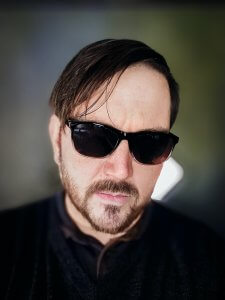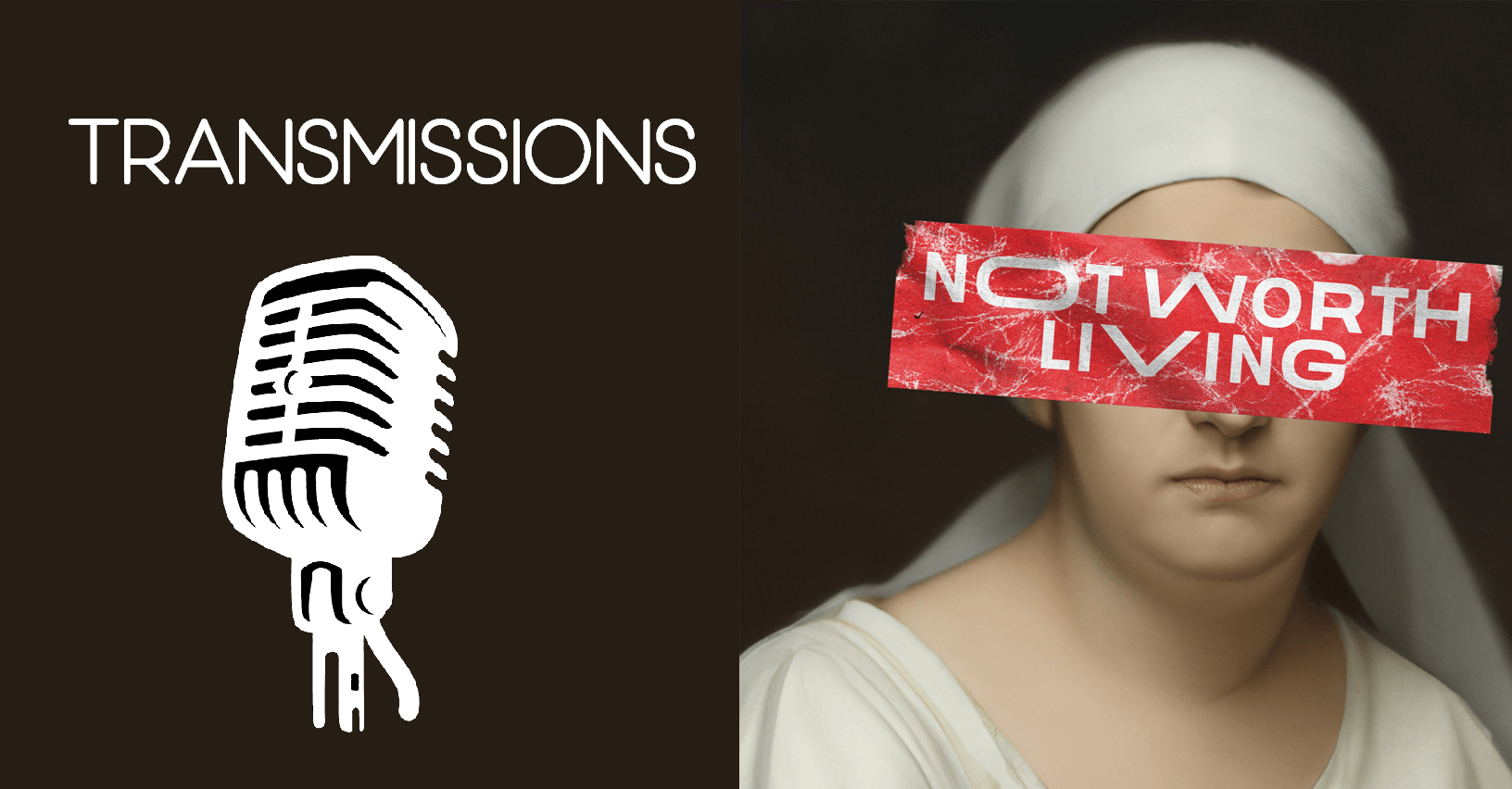Welcome to Transmissions, an interview feature in which X-R-A-Y profiles podcasts.
 Ira Rat works and lives in Ames, IA—artist, designer, and author of the cult novella Participation Trophy. He runs Filthy Loot Press, and slowly disseminates the podcast Not Worth Living.
Ira Rat works and lives in Ames, IA—artist, designer, and author of the cult novella Participation Trophy. He runs Filthy Loot Press, and slowly disseminates the podcast Not Worth Living.
Rebecca Gransden: How would you describe the podcast to someone who is unfamiliar with what you do?
Ira Rat: I ask creatives to sit alone in a room and ask themselves questions, hopefully getting them to subconsciously stumble onto something interesting — beyond the same answers you hear on other podcasts. It doesn’t always work, but when it does… (chef’s kiss)
RG: How long has the podcast been in existence, and how have you seen it grow over that time?
IR: We’re approximately eight months old at this point. I avoid looking at the numbers, not because I’m “too cool” to care about that. I’m just trying to avoid statistics becoming the driving force of my decisions.
However, people have been approaching me to be on it. So that’s something…
RG: Where did the idea for the podcast come from?
IR: It was originally going to be a book about the process of creatives that I admired. After years of thinking about it, I decided that doing it as a podcast was far less precious and time-consuming.
RG: How did you decide upon a title for the podcast?
IR: Not Worth Living is a tongue-in-cheek play on Socrates’ quote: “The unexamined life is not worth living.” I’ve always had a predilection towards provocative names, even (or especially) when the things they’re associated with are fairly innocuous.
RG: Are there any podcasts that influenced or encouraged you to start the project?
IR: The only influence I’ve gotten from other podcasts was removing myself from the equation. There have been too many podcasts that I’ve listened to where the guest has to talk over the interviewer because, at some point, it becomes just as much about the interviewer’s personality as it is about the guest.
RG: What episode of the podcast would you recommend to someone who is new to what you do?
IR: Charlene Elsby set the tone for how I would like the podcast to go. Several irreverent ones have played with the format, but the idea of someone opening up about what makes them tick is the show’s main goal.
RG: How do you go about selecting what to feature on each episode?
IR: I post the latest episode and start panicking because I don’t have the next one recorded. I only go for people whose work I like or, at the very least, seem to have an interesting point of view based on their social media persona. It’s not rocket science, but I haven’t been steered wrong… yet.
RG: If you are a writer, has the podcast impacted your writing life? and conversely, has a writerly disposition influenced the podcast?
IR: As an artist, designer, writer, musician, publisher, etc., etc, everything influences everything. I’m always running towards one project to avoid another. This is just the new distraction in the rotation.
RG: What is the best podcast out there at the moment, the one you are excited for when each new episode drops?
IR: Writing the Rapids. It helps that I enjoy the majority of writers he has as guests.
RG: What do you dislike about podcasts?
IR: Hosts.
RG: Who is your dream guest?
IR: Dennis Cooper or Billy Martin would be great! Or somebody completely unexpected like Brian Eno or David Hockney.
RG: What are your plans for the future?
IR: I’m trying to get more non-writers on the show to mix it up a bit more. So far, we’ve had Jad Fair, one of my favorite musicians. I’ve also been talking to some directors, comic artists, artists, etc. I love authors, but I’d like to get a more diverse cross-pollination of ideas.
Not Worth Living can be found at Spotify and YouTube.

